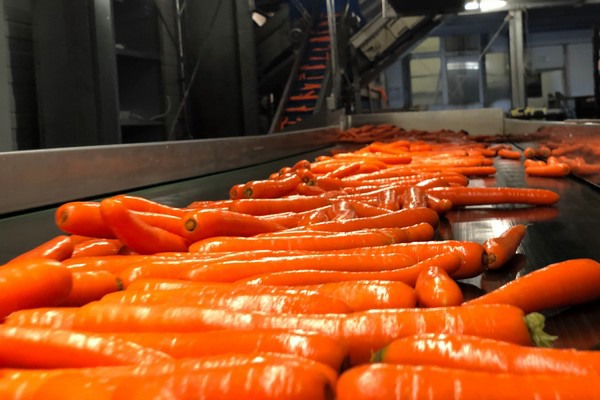Due to abundant rainfall and difficult harvesting conditions, the storage of table carrots is progressing rather slowly this year, as Axel Meyer from the vegetable growing and trading company of the same name tells us. "In many parts of Germany, it's almost impossible to harvest at the moment. Here in northern Germany, around 70-80 per cent of the crops have been harvested and stored. I also fear that the quality will suffer due to the rainfall. But that will become clear later in the season."
However, the summer season was quite pleasing, says Meyer looking back. "After the drought, the rain came, so the growth of the crops and therefore the yields were satisfactory to good. Sales were also quite brisk over the summer months. The problems have only been apparent for about three to four weeks: In short, conditions are not as optimal as one would wish."

The same applies to foreign carrot-growing regions, from which imported goods are sourced for the German market in the second half of the season. Meyer: "Spain is struggling with serious water problems, which is why many farms are unable to irrigate their plants properly. In Israel, of course, there is the war situation in the Gaza Strip. In this respect, I can't say that spring carrots won't be in short supply in April, May and June. But that's also difficult to predict: I've been in the business for 30 years and every year is a different year."
Meanwhile, there is a steady demand for German carrots from German food retailers. "The big retailers are buying their quantities as planned. The only thing is that prices kept falling from week to week in the summer. We therefore hope that we can now stop the downward trend, especially as there are not enough carrots in stock."

Trend towards smaller containers and loose goods
In the longer term, there is a trend towards smaller pack sizes in food retail. "People are increasingly switching from 2 kg to 1.5 kg bags and from 1 kg to 750 g trays. However, what has been on the rise for several years now is the loose marketing of carrots at the point of sale. We are seeing an increase of five to ten per cent from year to year," concludes Meyer.
Images: Axel Meyer Gemüsebau
For more information:
Axel Meyer Gemüsebau
Radbrucher Weg 7
D 21360 Vögelsen
Tel.: +49/4178/899799-0
Fax: +49/4178/899799-91
E-Mail: [email protected]
www.meyer-gemuesebau.de
